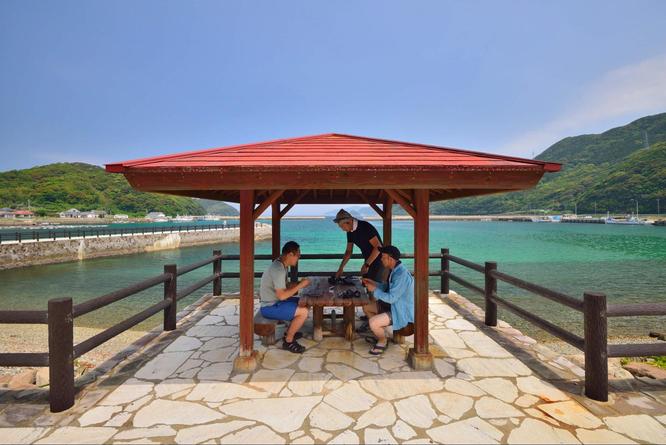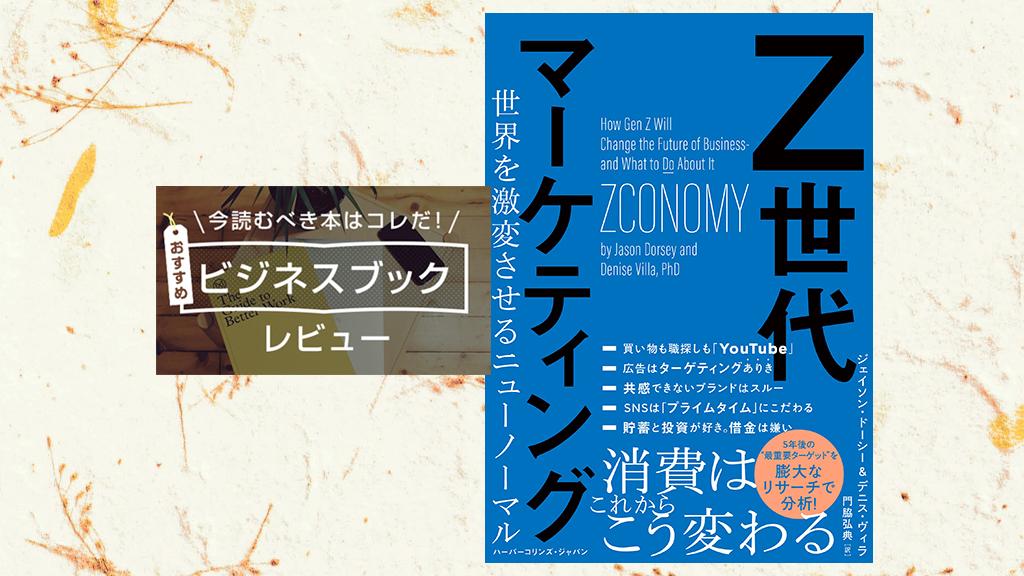Worcation suddenly began to attract attention in 2021. According to a survey of middle-aged people (2420 people) aged 35 and over by En Japan released in January, the awareness of worcation is 70%, and all the respondents who answered "I want to do worcation" It went up to 60%.
On the other hand, only 7% have actual experience. Only words quickly became well known, but few people have practiced them at this time. That is the situation surrounding worcation in Japan.
In this five-part series, he himself goes back and forth between Tokyo and the Goto Islands in Nagasaki Prefecture almost every month, and continues to be involved in the management of the worcation project that "about 40% of applicants are the decision-making layer of the organization." Maruka Suzuki, the representative director of Mitsumeru Journey, a general incorporated association, will explain the super-introduction to business people.
Before Corona, it was a super niche work style, but ...
"What is worcation in the first place?"-I would like to start by answering that question.
As is often said, "worcery" is a coined word that combines "WORK" and "VACATION". I think it's Japanese-made English, but it's a word that has been used since the 2000s in Europe and the United States, and there are two spellings, "WORKATION" and "WORCATION".
It generally refers to a work style where you spend your vacation away from the hustle and bustle of the city while working in a resort, but it doesn't necessarily involve moving from the city and staying in a cozy hotel in the city for a few days. However, the style of working while enjoying extraordinary life seems to be called "wortation" overseas. When I asked an acquaintance who came from Singapore, the author, "Do you know worcation?", He said that the latter "style of staying at a hotel in the city on weekends" was the first image.
The image of "opening a PC and working in nature" is becoming established, but what kind of "work" is actually suitable for it? (Photo by Kenji Hirose)It was around 2018 that the word "wortcation" began to spread in Japan. Shirahama Town, Wakayama Prefecture, which is now known as the "Sacred Land of Worcation," has begun to promote worcation in 2017. It was from 2018 to 2019 that we, the members of Mitsumeru Journey, started planning and operating remote work and wotech in the Goto Islands, Nagasaki Prefecture.
By the time Corona didn't even have a "U" character, the worcation participants were originally freelancer programmers and creators, writers, and public relations workers who could work without being tied to a place. Most of the people worked for IT companies that had a well-established system in-house. Some of them couldn't get the approval of their boss because the system for remote work wasn't set up yet. There were many participants who said, "I came here."
Considering now that remote work has become completely established due to the spread of the new coronavirus, there is a sense of alienation, but in 2019 before corona, remote work has not yet penetrated into society, and worcation is part of it. It was a "super niche" work style that only a limited number of people practiced.
It has been attracting attention since Chief Cabinet Secretary Yoshihide Suga (then) said in July 2020 that he would "work on the spread of worcation" in an attempt to boost tourism demand, which had fallen sharply due to the epidemic of the new coronavirus. It came to be. Even in Japan, the number of worcation players, which was only a few, has increased at a stretch, and the "major feeling" has gradually increased to the extent that it has been featured on TV. That is the current state of worcation in Japan.
There are three types of "WORK" in wormcation
In that way, the worcation is suddenly becoming a major from a super minor to a corona, but how do you actually spend it?
As I mentioned earlier, worcation consists of "WORK" and "VACATION". Even if you say "WORK" in a word, there are several patterns of what kind of "work" you do. Often, the word "worcery" is used as a set to introduce a workplace with an ocean view or a scene where a PC is open in a forest surrounded by greenery, but what kind of "WORK" is actually done? , It is not often spoken with high resolution.
"WORK" in wocation is roughly divided into the following three.

(1) Do the same work that you normally do (2) Do work that you can't usually do (3) Find the material for your next job
I think (1) is "WORK", which is the easiest to imagine.
Use communication tools such as Slack, Chatwork, and Microsoft Teams, which are rapidly becoming popular with Corona, to keep in touch with colleagues as usual and proceed with routine work. Participate in meetings and conferences as usual with Zoom and Google Meet. If you are in a position of having subordinates or team members such as managers and managers, this includes tasks such as progress confirmation, feedback, and evaluation.
"Doing a job that you can't usually do" in (2) is a "WORK" that you usually take time and energy in (1) and think "I have to do it" but can't get started. For example, "discuss carefully with colleagues and team members," "think about new business plans and business models," and "read materials and data and input them into your mind." Regarding (2), the environment like (1) is not always necessary. On the contrary, in an environment where there is no Wi-Fi, no radio waves, and no smartphone can be seen, it is better to be able to concentrate on thinking, talking, and reading.
Whereas (1) and (2) are "current jobs", "finding the material for the next job" in (3) is "future work". If you're an editor, creator, planner, or anyone else who has a job planning something, buy new material that might lead to your next job. If you are in a position to start a business, look for material to think about new projects. In addition, a case where a person who wants to do a side job or a double job, although he has only one main business now, finds hints for a parallel career that he thinks "I will make use of my special skills" and "I will enjoy it if I combine it with my main business". Also enter this (3). So, broadly speaking, it's time to design your future work.
As I will discuss in detail in the next and subsequent articles, when talking about "WORK" in worcation, it tends to be biased toward "daily work" in (1). However, if you bother to travel far away and work there, it makes more sense to increase the weight of "unusual WORK" in (2) and (3).
Immersing yourself in "unusual WORK", which you can't usually start because of routine work, may lead to fulfilling worcation. (Photo by Kenji Hirose)Office workers also redesign their work style
Throughout this series, Worcation is packed with tips to help you redesign your life with / after Corona.
Going forward, business people will be given more freedom in their work styles than previously thought before Corona. Remote work has become commonplace, and "working anytime, anywhere", which was only practiced by some freelancers such as designers and programmers before Corona, is becoming a common option. In addition, the ban on side jobs and job-type hiring that make use of expertise has been lifted, and the options of working as a project-based team regardless of whether inside or outside the company, or having work in both "city" and "regional" are realistic. It came out as a thing. We continue to come up with a number of measures to support such a trend in the country and companies.
How do you redesign your work style when you have this much "degree of freedom"? It is a challenge that Corona has faced for all of us. And worcation is one effective way to answer that challenge.
The Goto Islands in Nagasaki Prefecture, where the author plans and manages wo-cations. Every time I pursue the "meaning" of worcation in a place far away from Tokyo. (Photo by Kenji Hirose)The true intention of the company, "I want benefits other than refreshing employees ..."
I would like this series to be read not only by individuals who have challenged worcation from now on, but also by companies who are considering "Would you like to introduce worcation as a company system ...?" increase.
A common merit of introducing wocation by companies is that "working in an environment surrounded by nature refreshes and improves the QOL and labor productivity of employees." .. Sure, you'll feel better if you're free from the rush hour of commuting and work at your ocean-view desk in a seaside town. You may be able to work faster because you are not exhausted on a crowded train, and you will run out of commuting time in the first place, so if you devote that time to activities that you cannot normally do, such as running and surfing, you will feel more fulfilled.
However, as a company, "refreshing employees" alone cannot actively send employees to worcation. I really want a merit that I can feel the direct effect on management and human resource development. The situation is that we are reluctant to introduce worcation beyond the various hurdles above.
And, in response to the "real intention" of such companies, the current situation is that the worcation planning and management side nationwide, from the government to the private sector, has not been able to clearly state that "this is the effect of worcation." In this series, based on actual examples, companies that are in a position to decide whether or not to send employees will be convinced that "then, let's challenge worcation once." I would like to introduce you specifically.
Enka Suzuki (Madoka Suzuki)
General Incorporated Association Mitsumeru Journey / Representative Director
Born in Hyogo prefecture in 1983. She graduated from the Faculty of Comprehensive Human Studies, Kyoto University in 2006, edited books at Asahi Shimbun Publishing, and Diamond, and became independent in 2016. Fascinated by Goto who visited on a trip, he published a photo guidebook with a photographer of Goto in 2018, a remote work demonstration experiment sponsored by Business Insider Japan in 2019, and planning and management of a worcation challenge sponsored by Goto City. In 2020, he will also work on the 2nd Goto City-sponsored Worcation Challenge "Shimagurashi Worcation in GOTO".
Achievements such as "long-term stay of 6 nights on average during the off-season of tourism", "about 40% of applicants are the decision-making layer of the organization", and "1.9 times more customers with zero advertising expenses" are attracting attention in the wormcation area. In addition, she also designed a creator-in-residence project that utilizes the closed school, and is active while going back and forth between Tokyo and Goto in order to create a rich relationship between Goto and the urban area. In her main business, she is also the editor-in-chief of the news media "Utopi" and a regular commentator for AbemaTV "W's tragicomedy-Japan's most radical woman's news-" where SHELLY is the MC.
Staring Journey Website




